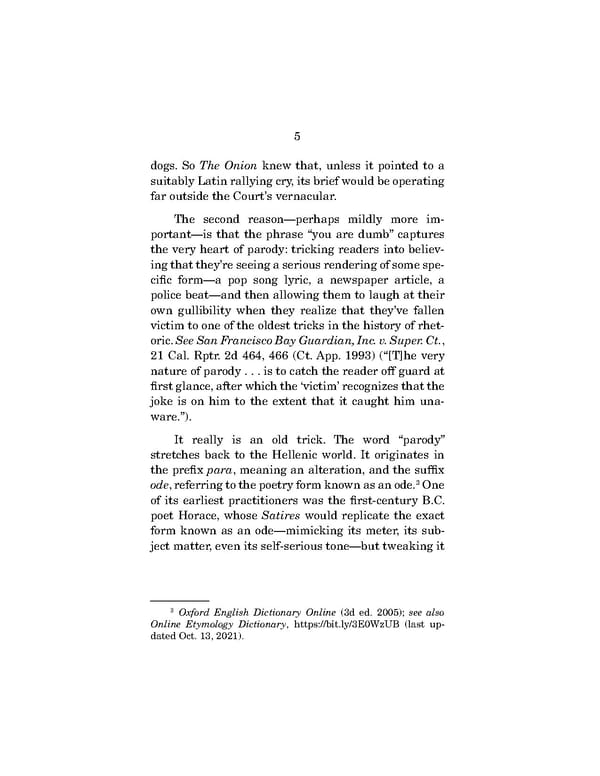5 dogs. So The Onion knew that, unless it pointed to a suitably Latin rallying cry, its brief would be operating far outside the Court’s vernacular. The second reason—perhaps mildly more im- portant—is that the phrase “you are dumb” captures the very heart of parody: tricking readers into believ- ing that they’re seeing a serious rendering of some spe- cific form—a pop song lyric, a newspaper article, a police beat—and then allowing them to laugh at their own gullibility when they realize that they’ve fallen victim to one of the oldest tricks in the history of rhet- oric. See San Francisco Bay Guardian, Inc. v. Super. Ct., 21 Cal. Rptr. 2d 464, 466 (Ct. App. 1993) (“[T]he very nature of parody . . . is to catch the reader off guard at first glance, after which the ‘victim’ recognizes that the joke is on him to the extent that it caught him una- ware.”). It really is an old trick. The word “parody” stretches back to the Hellenic world. It originates in the prefix para, meaning an alteration, and the suffix 3 ode, referring to the poetry form known as an ode. One of its earliest practitioners was the first-century B.C. poet Horace, whose Satires would replicate the exact form known as an ode—mimicking its meter, its sub- ject matter, even its self-serious tone—but tweaking it 3 Oxford English Dictionary Online (3d ed. 2005); see also Online Etymology Dictionary, https://bit.ly/3E0WzUB (last up- dated Oct. 13, 2021).
 Onion - Legal Case for Parody Page 9 Page 11
Onion - Legal Case for Parody Page 9 Page 11